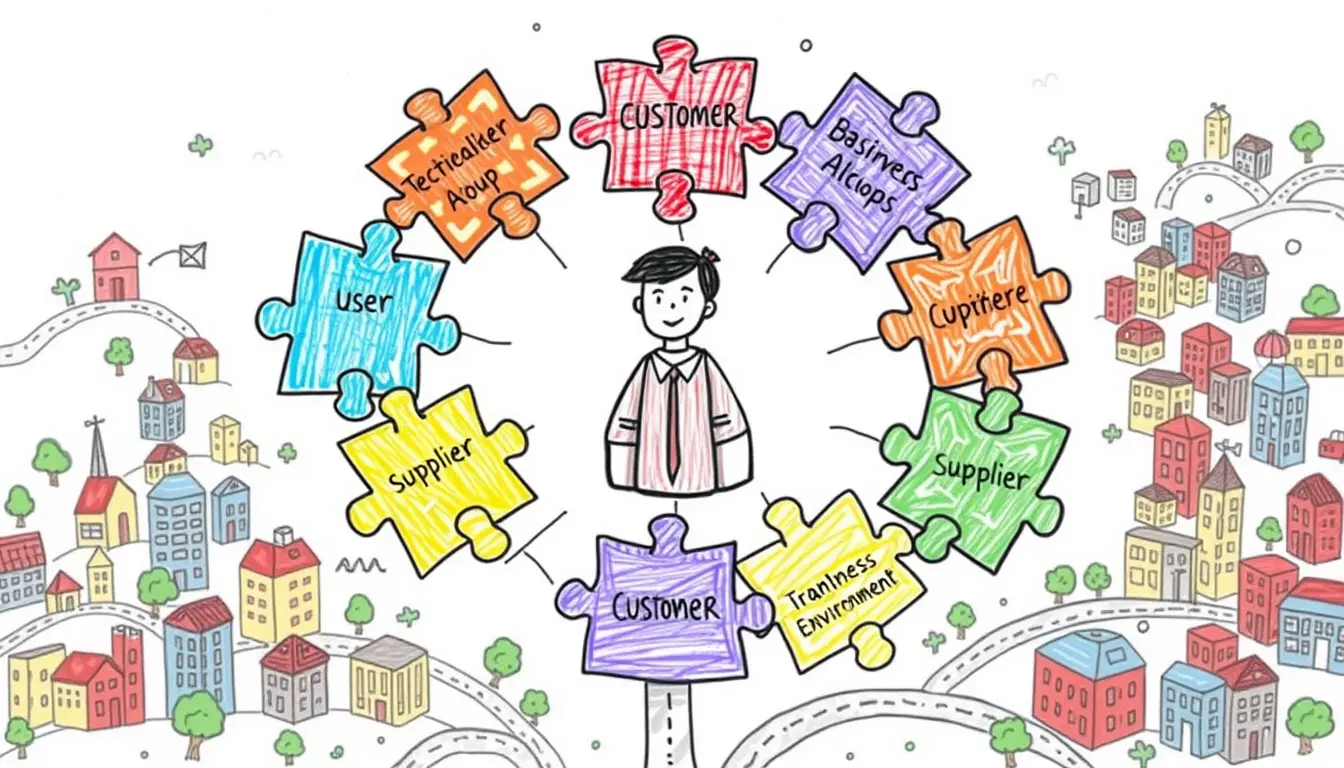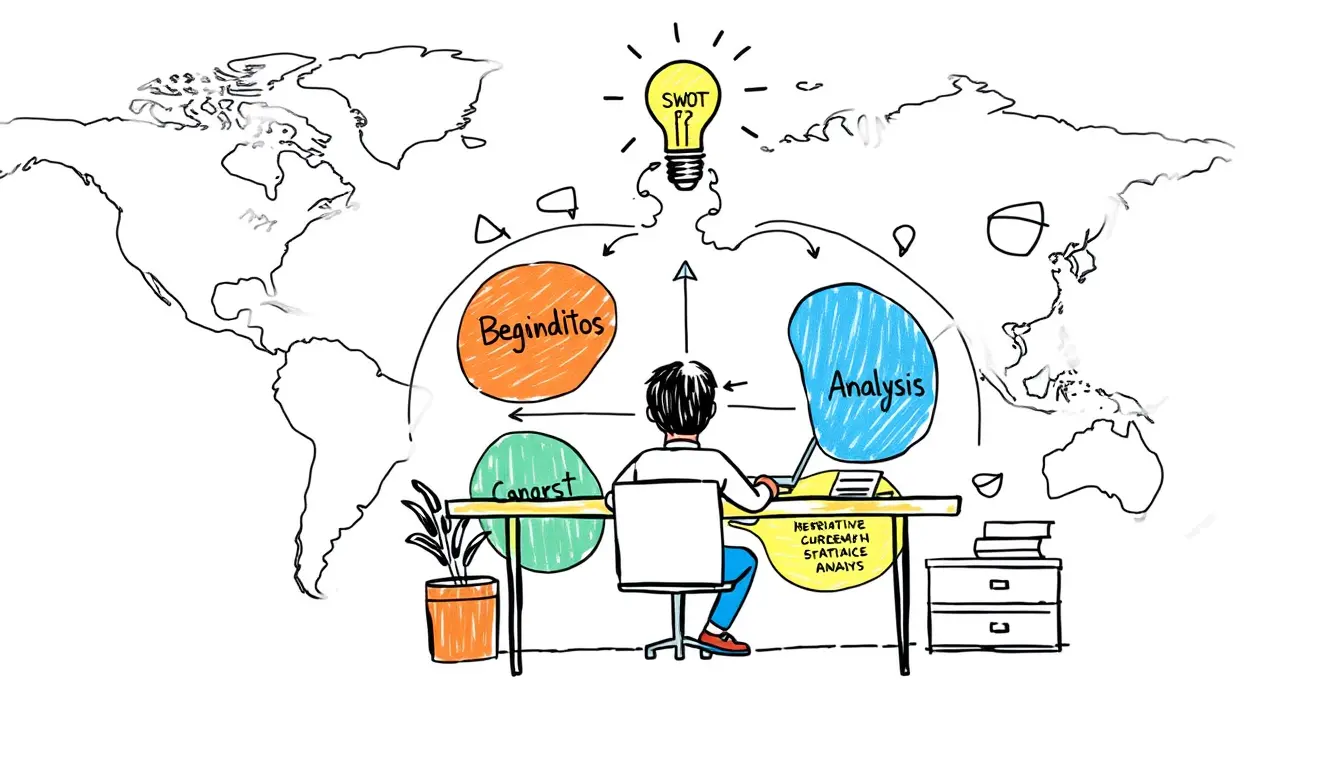Understanding the Role of Business Psychology in Change Management
In today’s rapidly evolving business landscape, change has become a constant. Organizations that are able to navigate and adapt to these changes effectively have a competitive edge. But how can businesses ensure smooth transition and successful implementation of change initiatives? This is where the role of business psychology comes into play.
Business psychology involves the application of psychological principles and theories to enhance organizational performance and well-being. In the context of change management, it focuses on understanding and influencing the psychological factors that influence individuals and groups during periods of change. By leveraging insights from behavioral science, cognitive psychology, and organizational psychology, businesses can effectively address the complexities and challenges associated with change. From enhancing change communication and engagement to overcoming resistance and fostering change readiness, business psychology offers valuable tools and strategies to guide organizations through the change process.
Identifying Key Psychological Factors that Influence Change Outcomes
To achieve successful change outcomes, it is crucial to understand the key psychological factors that influence individuals and organizations. One important factor is the level of employee motivation and engagement. When employees are motivated and engaged, they are more likely to embrace change and contribute positively to its implementation. On the other hand, low motivation and resistance can hinder the success of change initiatives. Therefore, identifying the underlying factors that impact motivation, such as individual values, goals, and attitudes, is essential for effective change management.
Another significant psychological factor is the level of employee trust and confidence in the change process. Trust is a fundamental element in any successful organizational change. Employees need to believe that the change is necessary, well-planned, and will ultimately benefit the organization and themselves. When there is a lack of trust, skepticism and resistance can arise, making it difficult to achieve desired change outcomes. Identifying the factors that contribute to or erode trust, such as communication transparency, past experiences, and leadership credibility, can help change leaders proactively address concerns and build a foundation of trust to support successful change implementation.
Utilizing Behavioral Science Principles to Drive Successful Change Initiatives
Successful change initiatives require a deep understanding of human behavior and how it can be influenced. Behavioral science principles provide valuable insights into the psychological factors that drive behavior, allowing organizations to design change strategies that are more likely to succeed.
One important principle is the concept of “nudging.” Nudging refers to subtle changes in the way choices are presented that can influence decision-making. By using behavioral science techniques, organizations can nudge employees towards adopting the desired changes, making it easier for them to embrace new ways of working. For example, by framing the change as a social norm or highlighting the positive consequences of the change, employees are more likely to feel compelled to participate. This approach takes advantage of our innate tendency to conform to social norms and seek positive outcomes, increasing the chances of a successful change initiative.
Applying Cognitive Psychology to Enhance Change Communication and Engagement
The field of cognitive psychology can offer valuable insights to enhance change communication and engagement within organizations. By understanding the cognitive processes that individuals undergo during times of change, leaders can tailor their communication strategies to maximize understanding and engagement.
One important aspect to consider is the role of attention and perception. Cognitive psychology suggests that individuals are more likely to pay attention to information that is salient and relevant to their needs. Therefore, when communicating about change, leaders should strive to present information in a clear and concise manner, highlighting its significance and linking it to the individual’s work or goals. Additionally, using visual aids, such as charts or diagrams, can help individuals process complex information more effectively.
Leveraging Organizational Psychology for Effective Change Leadership
Organizational psychology plays a pivotal role in driving effective change leadership within an organization. By understanding the psychological dynamics at play, leaders can effectively navigate through the complexities associated with change. One key aspect of leveraging organizational psychology for effective change leadership is the recognition of the influence of organizational culture. Culture encompasses the shared values, beliefs, and behaviors within an organization, and it can either hinder or facilitate change processes. Leaders who are aware of the existing culture can tailor their change strategies to align with the values and norms of the organization, thereby increasing the likelihood of successful change adoption.
Another crucial element in leveraging organizational psychology for effective change leadership is the understanding of individual and group dynamics. People are inherently resistant to change, primarily due to fear of the unknown and the potential disruptions it may cause. Leaders who recognize and address these concerns can effectively manage resistance and create a supportive environment for change. Additionally, understanding group dynamics is essential in navigating through the intricate relationships and power dynamics within teams or departments. By promoting open communication, fostering collaboration, and ensuring equal participation, leaders can foster a sense of ownership and commitment among employees, ultimately enhancing the success of change initiatives.
Integrating Emotional Intelligence into Change Management Strategies
Emotional intelligence plays a crucial role in change management strategies, as it enables leaders to understand and manage their own emotions, as well as the emotions of others. By developing emotional intelligence, leaders can effectively navigate the challenges and complexities associated with organizational change. They can empathize with their team members, acknowledge their fears and concerns, and provide the necessary support and guidance to ensure a smooth transition.
One key aspect of integrating emotional intelligence into change management strategies is fostering open and transparent communication. Leaders who possess emotional intelligence are skilled at creating a safe and supportive environment where employees feel comfortable expressing their emotions and concerns. By encouraging open dialogue, leaders can identify any potential obstacles or resistance to change, and address them proactively. This not only helps to build trust and engagement, but also allows for effective problem-solving and decision-making throughout the change process.
Analyzing the Impact of Individual and Group Dynamics on Change Adoption
Individual and group dynamics play a crucial role in the adoption of change within an organization. Understanding how these dynamics influence individuals and teams can provide valuable insights into the success or failure of change initiatives.
At the individual level, factors such as attitudes, beliefs, and past experiences can significantly impact the adoption of change. Some individuals may embrace change readily, while others may resist or feel anxious about it. Additionally, individual characteristics such as personality traits, motivation, and the capacity for self-regulation can influence how individuals respond to change. For instance, individuals who are open to new experiences and have a high tolerance for ambiguity may be more likely to embrace change compared to those who prefer stability and familiarity.
Within groups and teams, various dynamics come into play during change adoption. Group norms, power dynamics, and the level of cohesiveness influence members’ acceptance and engagement in the change process. Resistance to change can emerge if group members perceive that their social identity or interests are threatened. On the other hand, cohesive and supportive teams with a shared sense of purpose are more likely to unite and navigate through the challenges of change together. Understanding the unique dynamics of each group and tailoring change strategies accordingly can enhance the chances of successful adoption and implementation.
• Attitudes, beliefs, and past experiences can impact individual adoption of change
• Personality traits and motivation influence how individuals respond to change
• Openness to new experiences and tolerance for ambiguity may increase likelihood of embracing change
• Group norms, power dynamics, and cohesiveness affect group acceptance of change
• Resistance to change may arise if social identity or interests are threatened within a group
• Cohesive teams with shared purpose are more likely to navigate challenges of change together
• Tailoring change strategies based on unique dynamics of each group enhances success
Implementing Psychological Techniques for Overcoming Resistance to Change
Overcoming resistance to change is a critical aspect of successful change management. By understanding the psychological factors that contribute to resistance, organizations can implement effective strategies to address them. One psychological technique that can be used is education and communication. This involves providing employees with clear and consistent information about the reasons for the change, its benefits, and how it aligns with the organization’s goals. By addressing any misconceptions or fears, employees are more likely to feel informed and engaged, reducing resistance to the change.
Another technique is involving employees in the change process. This can be done through participation and empowerment, giving employees a voice in the decision-making and implementation phases. By involving employees in the planning and execution of the change, organizations can tap into their expertise and make them feel valued. This sense of ownership can help overcome resistance as employees feel a sense of control and responsibility for the success of the change. Additionally, allowing employees to contribute their ideas and suggestions can help improve the change initiative and foster a positive and collaborative working environment.
With these psychological techniques in place, organizations can effectively address resistance to change and increase the likelihood of successful change implementation. It is important to remember that change is often met with resistance, and understanding the underlying psychological factors can help mitigate these challenges. By engaging employees in the change process and providing clear communication and education, organizations can pave the way for a smoother transition and ultimately achieve better change outcomes.
Enhancing Change Readiness through Motivational Psychology Approaches
Motivation plays a crucial role in change management as it helps individuals and teams embrace and adapt to new initiatives. By incorporating motivational psychology approaches, organizations can enhance change readiness and increase the likelihood of successful outcomes. One effective approach is goal setting, which involves setting clear and challenging objectives that align with the desired change. When individuals have specific goals to work towards, it provides them with a sense of direction and purpose, motivating them to take the necessary actions to support the change. Additionally, utilizing incentives and rewards can further boost motivation. By offering meaningful rewards or recognition for achieving milestones or implementing the change successfully, individuals are more likely to be motivated and engaged throughout the process.
Evaluating the Effectiveness of Business Psychology Strategies in Achieving Better Change Outcomes
Business psychology plays a crucial role in change management, as it focuses on understanding the human aspects of organizational transformation. Evaluating the effectiveness of business psychology strategies is essential for achieving better change outcomes. By utilizing various psychological principles and techniques, organizations can assess the impact of their change initiatives and make informed decisions to enhance the overall success of the process.
One aspect that needs to be evaluated is the ability of business psychology strategies to identify key psychological factors that influence change outcomes. By examining individual and group dynamics, resistance to change, and the level of change readiness within an organization, business psychologists can provide valuable insights into the success of change initiatives. This evaluation helps organizations determine the effectiveness of their strategies in addressing these factors and identifying areas that require improvement. Additionally, by analyzing the impact of cognitive psychology and emotional intelligence in change communication and engagement, organizations can gauge the effectiveness of their communication strategies and make necessary adjustments to ensure better change outcomes.
What is business psychology?
Business psychology is the application of psychological principles and theories to improve individual and organizational effectiveness in the business context.
What is change management?
Change management refers to the process of planning, implementing, and managing changes within an organization to ensure successful outcomes and minimize resistance.
How does business psychology contribute to change management?
Business psychology provides insights and strategies to understand and address the psychological factors that influence change outcomes, such as individual and group dynamics, communication, engagement, leadership, resistance, and readiness.
What are some key psychological factors that influence change outcomes?
Some key psychological factors that influence change outcomes include perception, motivation, attitudes, beliefs, emotions, cognitive biases, and social dynamics.
How can behavioral science principles drive successful change initiatives?
Behavioral science principles can be used to understand and influence human behavior, helping to design interventions and strategies that effectively drive change and encourage desired behaviors.
How does cognitive psychology enhance change communication and engagement?
Cognitive psychology provides insights into how people process information, make decisions, and perceive change. By applying cognitive psychology principles, change communication and engagement strategies can be tailored to better resonate with individuals and facilitate understanding and acceptance.
What role does organizational psychology play in effective change leadership?
Organizational psychology focuses on understanding individual and group behavior within organizations. It helps leaders develop strategies to effectively manage change, motivate employees, foster teamwork, and create a positive organizational culture during change initiatives.
How can emotional intelligence be integrated into change management strategies?
Emotional intelligence involves the ability to recognize and understand emotions, both in oneself and others. By incorporating emotional intelligence into change management strategies, leaders can better address emotional reactions, build trust, and create a supportive environment for change.
How do individual and group dynamics impact change adoption?
Individual and group dynamics influence how individuals and teams respond to change. Factors such as personality, communication, leadership, and group norms can either facilitate or hinder change adoption.
What psychological techniques can be used to overcome resistance to change?
Psychological techniques such as communication and empowerment, involvement and participation, education and training, and incentives and rewards can help overcome resistance to change by addressing underlying concerns, increasing motivation, and promoting a positive attitude towards change.
How can motivational psychology approaches enhance change readiness?
Motivational psychology approaches focus on understanding and influencing motivation to drive desired behaviors. By applying motivational psychology in change initiatives, leaders can enhance change readiness by addressing individual and collective motivations, aligning them with the desired changes, and fostering a sense of purpose and ownership.
How can the effectiveness of business psychology strategies in achieving better change outcomes be evaluated?
The effectiveness of business psychology strategies in achieving better change outcomes can be evaluated through various methods, including measuring employee satisfaction and engagement, assessing the adoption and sustainability of change, monitoring key performance indicators, conducting surveys and interviews, and analyzing qualitative and quantitative data.














Leave a Reply